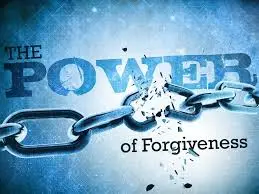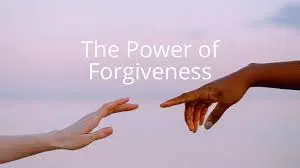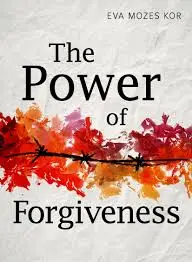Introduction: Why Forgiveness Matters More Than You Think.

Forgiveness is often misunderstood. It’s not about condoning bad behavior or letting others off the hook—it’s about freeing yourself from the burden of anger, resentment, and pain. We’ve all faced situations where we felt hurt, betrayed, or wronged by others. Holding on to those feelings can weigh us down emotionally and spiritually. But here’s the good news: forgiveness has the power to set you free and is a key step in how to forgive for spiritual growth.
In this article, we’ll dive deep into the emotional and spiritual benefits of forgiveness, how to forgive for spiritual growth, how it can help you release the past, and why it’s essential for your spiritual growth. Let’s explore how forgiveness can transform your life in ways you might not have expected.
Understanding Forgiveness: More Than Just Letting Go

What Is Forgiveness, Really?
Forgiveness goes beyond simply saying “I forgive you.” It’s a deep inner process that allows you to release negative emotions, heal past wounds, and restore peace in your heart.
It’s about healing not just for the person who hurt you, but for yourself. When you hold onto bitterness and resentment, it’s like carrying around a heavy load. How to forgive for spiritual growth is about releasing that weight. Forgiveness lightens that load and allows your spirit to soar.
Forgiveness is a Gift to Yourself
The truth is, when you forgive someone, you’re not doing them a favor, you’re doing it for your own well-being. Holding grudges doesn’t punish the other person; it keeps you stuck in a cycle of negative emotions. How to forgive for spiritual growth is about letting go of that anger, which can be one of the most liberating experiences of your life.
The Emotional and Spiritual Benefits of Forgiveness
Emotional Healing Through Forgiveness

When we hold onto past hurts, we allow those feelings to control us. Over time, this can lead to emotional exhaustion, anxiety, and even physical symptoms like headaches or tension. By forgiving, we release the grip these emotions have on us, making room for healing and peace.
Letting Go of Resentment
Resentment is like a poison that slowly destroys your mental and emotional health. It can cause stress, anxiety, and even physical illness. Forgiveness is the antidote to that poison. By forgiving, you stop letting those past actions define your emotional state, and you take back control of your peace.
Restoring Inner Peace
Forgiveness isn’t just about making peace with others, it’s about making peace with yourself. When you forgive, you create space for tranquility in your heart. The anger, bitterness, and frustration that once controlled you fade away, leaving room for inner peace.
Forgiveness as a Path to Spiritual Growth
The Spiritual Power of Letting Go
Spirituality isn’t about how many prayers you say or how often you meditate, it’s about how deeply you can connect with your inner self and the world around you. Forgiveness is a powerful tool in that connection.
Forgiveness allows you to release emotional baggage that keeps you disconnected from your higher self and from others. It’s a spiritual practice that opens up your heart and mind, allowing you to embrace love, empathy, and compassion.
Forgiveness Fosters Compassion and Empathy
Forgiveness opens the door to compassion. When you let go of anger and resentment, you begin to understand the perspective of the other person. You realize that everyone is human and makes mistakes. Instead of judging, you respond with empathy and kindness.
How to Forgive: A Step-by-Step Guide
Acknowledging the Hurt
The first step in forgiveness is acknowledging the hurt. Denying the pain doesn’t help anyone, it only keeps you trapped in the past. Recognize how you feel, and give yourself permission to experience those emotions. This step is essential for healing.
H3: Letting Go of Expectations
Forgiveness doesn’t mean you expect the other person to apologize or change. It’s not about what they did—it’s about what you choose to do with your feelings. Let go of the expectation that the other person will make things right, and focus instead on your own healing.
Choosing to Release
Choosing to forgive is an act of empowerment. It’s a decision to release the negative energy that no longer serves you. This step can be challenging, but it’s crucial for your spiritual growth. Remember, forgiveness is for you, not the other person.
Overcoming Common Barriers to Forgiveness
Why It’s Hard to Forgive
Forgiving isn’t always easy, and there are several reasons why people struggle with it. One of the biggest barriers is the fear of being hurt again. We fear that if we forgive, we’re opening ourselves up to future pain. But forgiveness doesn’t mean you forget, it means you free yourself from the emotional burden of the past.
Dealing with Anger and Hurt
It’s normal to feel angry or hurt after being wronged. These emotions are valid, and it’s important to process them before you can fully forgive. Acknowledging your feelings allows you to move past them and clear the emotional clutter that blocks your growth.
The Role of Self-Forgiveness
Forgiving Yourself for Past Mistakes
Forgiveness isn’t just about others, it’s also about forgiving yourself. We all make mistakes, and sometimes we carry guilt or shame about our past actions. Letting go of self-blame is an essential part of spiritual growth.
Self-Forgiveness Leads to Healing
By forgiving yourself, you open the door to healing. It’s about accepting that you are human and imperfect, just like everyone else. Self-forgiveness helps you move forward, free from the chains of regret and self-criticism.
How Forgiveness Transforms Your Life
Forgiveness Leads to Freedom
When you forgive, you release the grip that past events have on you. This emotional freedom allows you to live more fully in the present moment. Instead of being weighed down by past hurts, you embrace the opportunities ahead with an open heart.
Rebuilding Trust
Forgiveness doesn’t always mean you rebuild the same relationship. Sometimes, it means forgiving to restore your own sense of peace, even if you don’t rekindle the connection. However, in cases where trust can be rebuilt, forgiveness creates the foundation for deeper, more authentic relationships.
The AIDS Epidemic: A Retrospective on the Crisis, Activism, and Medical Breakthroughs
Forgiveness in Different Spiritual Traditions
Forgiveness in Christianity
In Christianity, forgiveness is a central teaching. Jesus’ message of forgiveness calls on believers to forgive others, just as they have been forgiven by God. Forgiveness is seen as a way to heal the soul and follow the path of love and compassion.
Forgiveness in Buddhism
In Buddhism, forgiveness is seen as a way to end suffering. The practice of letting go of anger and resentment is a form of detachment, allowing individuals to find peace and clarity in their lives. It’s believed that forgiveness helps clear the mind and opens the heart to compassion.
Forgiveness in Islam
In Islam, forgiveness is also highly emphasized. The Quran encourages believers to forgive others as a way to grow closer to God. It teaches that forgiveness leads to inner peace and promotes harmony within communities.
Conclusion: The Healing Power of Forgiveness
Forgiveness isn’t just a spiritual practice, it’s a life-changing force. It frees you from the emotional chains of anger and resentment, allowing you to embrace personal growth, peace, and compassion. How to forgive for spiritual growth is crucial, whether you’re forgiving others or yourself. This process is essential for emotional and spiritual well-being.
Remember, forgiveness is not about excusing harmful actions, it’s about choosing to release the past and open yourself to a brighter, more peaceful future. Take the first step today, and experience the transformative power of forgiveness.
FAQs
1. What is the first step in the forgiveness process?
The first step is acknowledging the hurt and accepting your feelings. Without recognizing the pain, you cannot begin the healing process.
2. Can forgiveness help with anxiety and stress?
Yes! Forgiving releases negative emotions, reducing stress and anxiety, and promoting emotional healing.
3. How can I forgive someone who hasn’t apologized?
Forgiveness is a choice you make for your own healing. It’s not dependent on the other person’s actions but on your desire to release negative emotions.
4. Is self-forgiveness necessary for personal growth?
Absolutely! Forgiving yourself is crucial for overcoming guilt and regret, and it allows you to grow and move forward with a clear heart.
5. How can I tell if I’ve truly forgiven someone?
You’ve truly forgiven when the negative emotions tied to the past no longer have control over you, and you can move forward with peace and compassion.


